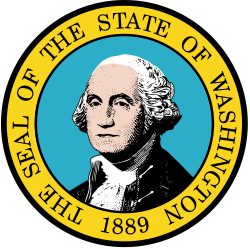November 7, 2006 | |||||||||||||
Property Tax Exemption | |||||||||||||
| Results | |||||||||||||
|---|---|---|---|---|---|---|---|---|---|---|---|---|---|
| |||||||||||||
Yes 70–80% 80–90% | |||||||||||||
| Elections in Washington (state) |
|---|
 |
House Joint Resolution 4223 was a constitutional amendment in Washington which passed the house and was approved by the voters of the state in the 2006 general election.[ citation needed ]
- This amendment would authorize the legislature to increase the personal property tax exemption for taxable personal property owned by each "head of a family" from three thousand ($3,000) to fifteen thousand ($15,000) dollars.
